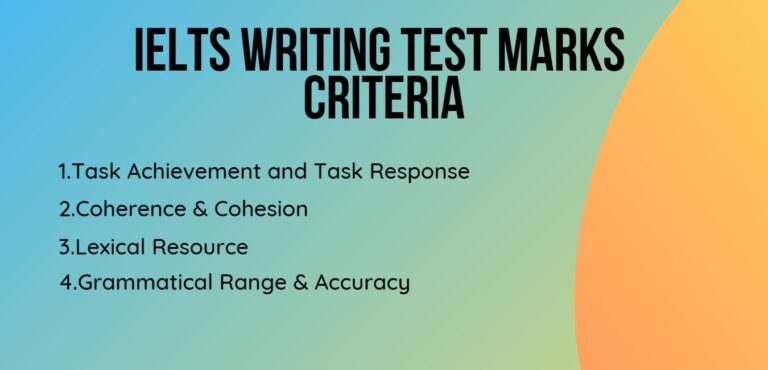8 Powerful IELTS Writing Tips
The IELTS writing test is an integral part of the IELTS test.
This section is considered to be the most difficult of all the 4 by many students. But don’t worry, because this blog will take you through some of the most crucial IELTS writing tips which you can use and ace IELTS.
But before we jump into that, let’s have a clear picture of the structure of the IELTS writing section and the criteria involved in the scoring.
IELTS Writing Test Structure
The IELTS writing test is scheduled for 60 mins.
IELTS General Writing Test:
The Test is divided into two segments.
- Task 1 – Letter Writing
- Task 2 – Essay
In the IELTS general writing section, task 1 is letter writing. You are presented with a situation and are supposed to write a letter explaining the situation or request something based on the situation. The answer should be a minimum of 150 words.
Task 2 deals with the Essay. You will be asked to write an essay in response to a point of view, argument, or problem. You can be a bit more personal when it comes to this task. The answer should be a minimum of 250 words.
IELTS Academic Writing Test:
- Task 1 – Data Analysis
- Task 2 – Essay
Here, in task 1 you will be asked to explain a visual representation of information. This might be a graph, table, chart, or diagram. The answer should be a minimum of 150 words.
Task 2 is as same as in the general IELTS test. You will be asked to write an essay about a given topic. The answer should be a minimum of 250 words.
IELTS Writing Test Criteria

Task Achievement: This criterion revolves around the information, overview, detail, and accuracy you’ve provided in the answer sheet. This criterion is only subjected to task 1.
Task Response: This is associated with task 2. The examiner checks how the idea is represented in the essay, and what relevant examples have you provided to support your statements.
Coherence and Cohesion: This criterion takes into consideration how well you’ve organized your paragraphs, the use of connectors, linking words, and so on.
Lexical Resources: Proper spellings, usage of vocabulary, and correct implementation of word formations are taken into consideration.
Grammatical Range and Accuracy: This criterion refers to the proper use of sentences, tenses, usage of punctuation, commas, and more. Basically, your control over the grammar is considered in this criterion.
With this adequate information, let’s jump into those IELTS writing tips and tricks that will help you ace your IELTS writing test. All the below IELTS writing tips takes into consideration at least one of these criteria to help you score better.
IELTS Writing Tips:
IELTS Writing tip #1: Counting the number of words:
Writing the answers in the specified number of words given in the question is very important in IELTS. Writing less will result in the elimination of marks whereas writing more won’t yield you more marks as well. Writing more will actually snatch away the time that you have.
So now what’s the solution to this? It is pretty simple.
Whenever you are practicing the writing section, use the IELTS answer sheet. This will help you in crossing the minimum number of words required at the same time not taking too much of your time as well. This IELTS writing tip is indeed one of the most crucial tip that you often hear.
IELTS answer sheet can be downloaded at the provided link.
IELTS writing tip #2: Do not copy the question
One of the easiest ways to increase the number of words in the answer is to copy the question itself.
But this is a big NO in IELTS.
Do not ever copy the question as you won’t get any marks but get penalized for doing this. Every line that you write should reflect your own thoughts, and opinions unless they have asked you to write in a certain manner.
The examiners are always searching for such errors, and you better don’t want to get caught.
IELTS Writing tip #3: Map out your ideas
Once you read the question, take a minimum of 5 minutes to organize your thoughts into proper sentences. Be clear about the examples that you will be provided in the answer paper. Make sure your idea fits into the question asked.
This will avoid any unnecessary mistakes while writing the answer. This will also help you in saving time, as you have a clear idea of where you need to take your story.
Students who don’t do this tend to have confusion and then get anxious while writing the IELTS test. So Be clear about what you are writing.
IELTS Writing tip #4: Keep it to the point
Following the last point, it is crucial to keep your answers to the point. Don’t write your answers in a confusing way that makes the answer difficult to be understood.
If you believe that using complex statements, and words will impress your examiner, then sorry to break your heart because it doesn’t work that way.
Being simplistic can surely help you. Make sure whatever you write is clear and sticks to a single point. Don’t try to argue and support a given point together.
IELTS Writing tip #5: Don’t memorize answers
Memorizing certain connecting words, or adjectives is a good tip but memorizing an entire is definitely not.
As said earlier, your examiners are trained to find such faults. Memorizing answers can put you into deep trouble because you won’t get any marks for doing so. Even if you have written exactly 150 or 250 words, it won’t be fruitful.
Focus on understanding the concepts and not memorizing. Create your own thoughts, and write answers in your own words. That’s the best way to go about it.
IELTS Writing tip #6: Stay away from grammatical errors
Errors such as spelling mistakes, incorrect sentence formation, incorrect usage of tenses will all have an effect on your marks. It is crucial that you put your thoughts into words in the right way and also to check your answers at least twice.
If you are practicing your essays through computers, then disable the spell check (or grammar check)
One more great tip is to have somebody with you to check your answers once done while practicing.
Having a strong knowledge of the fundamentals of English grammar is the best way to avoid this error.
IELTS Writing tip #7: Proofreading is the key
No matter how well you’ve written your answer, if you haven’t proofread it yet then you missed something important.
For both the tasks, always have some time left in the end for proofreading. Relax and read your answers. This can for sure bring out those errors that went unnoticed while you were writing. Every time you proofread, there’s a chance of finding a new error if it exists.
That’s how important proofreading can turn out to be.
IELTS Writing tip #8: End it with a good conclusion
No matter what your point of opinion is, always end your answers with a good conclusion. This is a chance to summarize your main points. You will be asked to provide your opinion in task 2, so put out your honest opinion about the subject here.
Don’t try to bring a new point in the conclusion section but don’t repeat the same words that you’ve already explained. Try to weave your thoughts in 3-4 sentences.
The conclusion is the last part of your essay, make sure you end it on a high note.
These are some of the most important IELTS writing tips that can help you ace the test.
We Hope these IELTS writing tips have helped you. Proper preparation and execution along with a dash of confidence will surely make you ace this section.
All the best for your exams!!!

